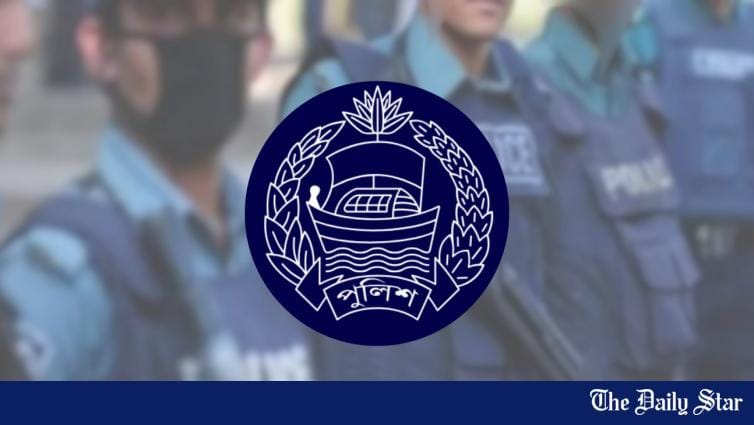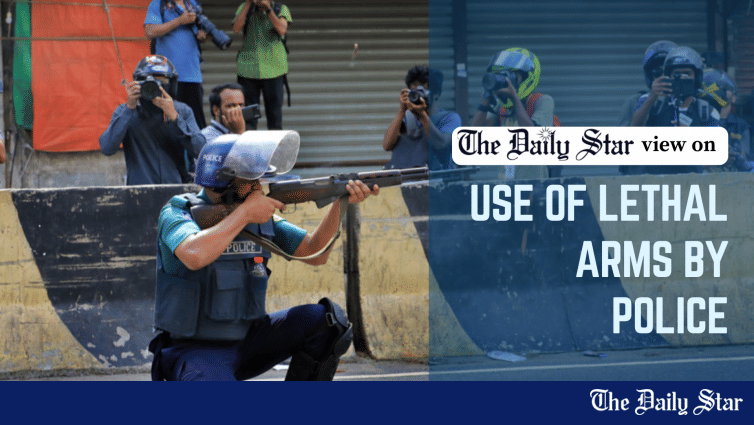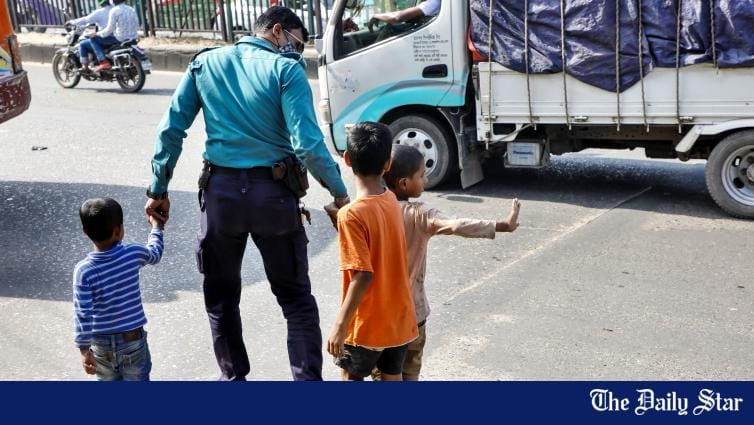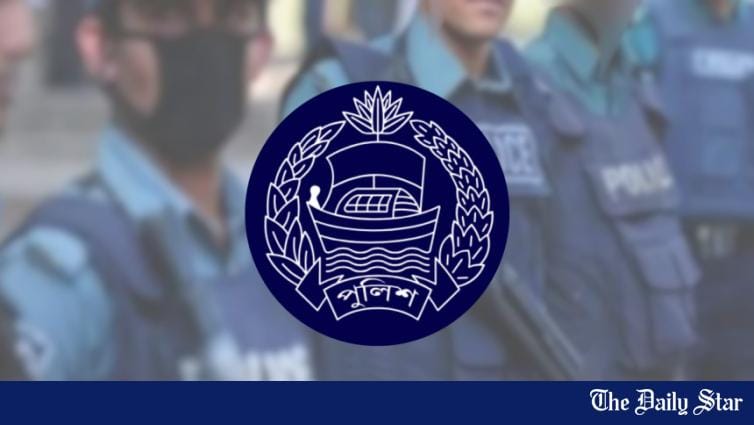- Copy to clipboard
- Thread starter
- #61

Crowd control operations: Police seek to restrict use of lethal arms
A special committee of the Police Headquarters recommends replacing 50 percent of the long barrel firearms with short-barrel ones in order to lower casualties during crowd control operations.
Crowd control operations: Police seek to restrict use of lethal arms

A special committee of the Police Headquarters recommends replacing 50 percent of the long barrel firearms with short-barrel ones in order to lower casualties during crowd control operations.
The short-barrel weapons are recommended because they have shorter ranges, according to the Arms and Ammunition Entitlement Committee.
It also proposes a ban on the use of revolvers, 7.62mm bullets, and lead pellets in shotguns.
If approved, the 7.62mm calibre pistols will be replaced by 9mm ones, which have a shorter range, said senior police officers who drafted the recommendations.
In the tumultuous days of the July uprising, law enforcers' use of long-barrel rifles, 7.62mm pistols, and lead pellets contributed significantly to the large number of casualties, the committee found in its initial analysis.
According to the health ministry data, 826 people were killed and 11,306 others were injured during the uprising. The ministry periodically updates the numbers.
Contacted on December 29, Inspector General of Police (IGP) Baharul Alam said he was yet to review the report.
"It will be sent to the home ministry and then to the Armed Forces Division. After receiving their opinions, the arms policy will be finalised," he said.
For crowd control and stopping violence, tear gas and batons will be used, he said.
"I personally advocate zero use of lethal weapons. Nowadays, advanced weapons are used to control crowds and subdue violence effectively. Somebody hit by a bullet from such a weapon will remain unconscious for a few minutes," the IGP added.
Requesting anonymity, a member of the arms entitlement committee said, "It will take four to five years to replace the munitions. The surplus will be given to the army."
Deputy Inspector General Abdul Kuddus Chowdhury is the chief of the committee formed on August 22. He has prior experience of serving as a member of a UN committee on the use of force.
A senior police officer involved in drafting the PHQ committee's recommendations said sniper rifles were used on protesters during the mass uprising, which was completely illegal.
The long-barrel firearms have an effective range of over 400 metres, while short barrel ones have a 50-metre range. The use of the latter will reduce the risk of unintended casualties, said the member.
The replacement of 7.62mm calibre pistols (100 metres range) with 9mm pistols (25 metres) will further limit casualties, he added.
In the days of the mass uprising in July, members of the police, Rab, Border Guard Bangladesh and other forces opened fire on protesters. Over 400 lost sight in lead pellet injuries. Many others suffered life-changing injuries.
The Daily Star analysed the pattern of injuries of 204 people who died as of August 1 and found that almost 95 percent of them were shot dead by live rounds or shotgun pellets. Of them, 113 were shot in the head, chest, and stomach.
The committee also mentions in the proposal that revolvers should be phased out because these are difficult to handle and prone to misfires.
Citing security concerns, officers refused to divulge how many firearms should be replaced or phased out.
While police have pistols, submachine guns, rifles, light machine guns, shotguns and teargas launchers, Rab, SWAT, and the counterterrorism unit of police have sniper rifles and machine guns, officers said.
Police had SMG and LMG for many years to protect police stations in war-like situations or other emergencies.
However, the use of weapons for crowd control began on a limited scale in 2012 and increased gradually, several officers said.
The decision to procure 7.62mm rifles and other lethal firearms was made in October 2014 at a meeting attended by representatives from the home ministry and Police Headquarters.
An officer who was at the meeting told this correspondent that the rationale presented for the decision were "difficult-to-control" demonstrations by Hefajat-e-Islam at Shapla Chattar on May 5, 2013 and by Jamaat-Shibir men at different times against the trial of war criminals.
The first shipment of weapons arrived in 2015 from Italy.
Procurement data on Bangladesh Police's website shows police have long been using 7.62 sniper rifles and 7.62mm bullets.
In March 2024, the Police Headquarters invited bidders to procure 50 (7.62mm) sniper rifles. In March 2023, it purchased 30 such sniper rifles.
Besides, police procured 15,000 7.62mm semi-automatic rifles in September 2019 and August 2018, according to the website of Bangladesh Public Procurement Authority.
RECOMMENDATIONS
The committee recommends that each 30-member platoon will be primarily armed with non-lethal weapons, and only two of the officers in the platoon will carry 9mm pistols for use in extreme cases.
The police will first try to de-escalate situations through communication. If crowds block roads or engage in other unlawful activities, police will give warning. If they throw brick chips, cause injuries, or detonate bombs, police will use water cannons, tear gas, and stun grenades.
Firearms will be used only in life-threatening situations, and officers will be instructed to target lower-body areas to reduce the risk of fatalities.
Striking forces with lethal weapons will be kept ready if a large crowd turns unruly and the first responders fail to control the situation.
Future policies will determine the number and type of arms a unit will have.
The committee also plans to focus on developing new training guidelines for officers.
"Our ultimate goal is to avoid another tragedy like the one we witnessed during the July-August protests," said the committee member.
A special committee of the Police Headquarters recommends replacing 50 percent of the long barrel firearms with short-barrel ones in order to lower casualties during crowd control operations.
The short-barrel weapons are recommended because they have shorter ranges, according to the Arms and Ammunition Entitlement Committee.
It also proposes a ban on the use of revolvers, 7.62mm bullets, and lead pellets in shotguns.
If approved, the 7.62mm calibre pistols will be replaced by 9mm ones, which have a shorter range, said senior police officers who drafted the recommendations.
In the tumultuous days of the July uprising, law enforcers' use of long-barrel rifles, 7.62mm pistols, and lead pellets contributed significantly to the large number of casualties, the committee found in its initial analysis.
According to the health ministry data, 826 people were killed and 11,306 others were injured during the uprising. The ministry periodically updates the numbers.
Contacted on December 29, Inspector General of Police (IGP) Baharul Alam said he was yet to review the report.
"It will be sent to the home ministry and then to the Armed Forces Division. After receiving their opinions, the arms policy will be finalised," he said.
For crowd control and stopping violence, tear gas and batons will be used, he said.
"I personally advocate zero use of lethal weapons. Nowadays, advanced weapons are used to control crowds and subdue violence effectively. Somebody hit by a bullet from such a weapon will remain unconscious for a few minutes," the IGP added.
Requesting anonymity, a member of the arms entitlement committee said, "It will take four to five years to replace the munitions. The surplus will be given to the army."
Deputy Inspector General Abdul Kuddus Chowdhury is the chief of the committee formed on August 22. He has prior experience of serving as a member of a UN committee on the use of force.
A senior police officer involved in drafting the PHQ committee's recommendations said sniper rifles were used on protesters during the mass uprising, which was completely illegal.
The long-barrel firearms have an effective range of over 400 metres, while short barrel ones have a 50-metre range. The use of the latter will reduce the risk of unintended casualties, said the member.
The replacement of 7.62mm calibre pistols (100 metres range) with 9mm pistols (25 metres) will further limit casualties, he added.
In the days of the mass uprising in July, members of the police, Rab, Border Guard Bangladesh and other forces opened fire on protesters. Over 400 lost sight in lead pellet injuries. Many others suffered life-changing injuries.
The Daily Star analysed the pattern of injuries of 204 people who died as of August 1 and found that almost 95 percent of them were shot dead by live rounds or shotgun pellets. Of them, 113 were shot in the head, chest, and stomach.
The committee also mentions in the proposal that revolvers should be phased out because these are difficult to handle and prone to misfires.
Citing security concerns, officers refused to divulge how many firearms should be replaced or phased out.
While police have pistols, submachine guns, rifles, light machine guns, shotguns and teargas launchers, Rab, SWAT, and the counterterrorism unit of police have sniper rifles and machine guns, officers said.
Police had SMG and LMG for many years to protect police stations in war-like situations or other emergencies.
However, the use of weapons for crowd control began on a limited scale in 2012 and increased gradually, several officers said.
The decision to procure 7.62mm rifles and other lethal firearms was made in October 2014 at a meeting attended by representatives from the home ministry and Police Headquarters.
An officer who was at the meeting told this correspondent that the rationale presented for the decision were "difficult-to-control" demonstrations by Hefajat-e-Islam at Shapla Chattar on May 5, 2013 and by Jamaat-Shibir men at different times against the trial of war criminals.
The first shipment of weapons arrived in 2015 from Italy.
Procurement data on Bangladesh Police's website shows police have long been using 7.62 sniper rifles and 7.62mm bullets.
In March 2024, the Police Headquarters invited bidders to procure 50 (7.62mm) sniper rifles. In March 2023, it purchased 30 such sniper rifles.
Besides, police procured 15,000 7.62mm semi-automatic rifles in September 2019 and August 2018, according to the website of Bangladesh Public Procurement Authority.
RECOMMENDATIONS
The committee recommends that each 30-member platoon will be primarily armed with non-lethal weapons, and only two of the officers in the platoon will carry 9mm pistols for use in extreme cases.
The police will first try to de-escalate situations through communication. If crowds block roads or engage in other unlawful activities, police will give warning. If they throw brick chips, cause injuries, or detonate bombs, police will use water cannons, tear gas, and stun grenades.
Firearms will be used only in life-threatening situations, and officers will be instructed to target lower-body areas to reduce the risk of fatalities.
Striking forces with lethal weapons will be kept ready if a large crowd turns unruly and the first responders fail to control the situation.
Future policies will determine the number and type of arms a unit will have.
The committee also plans to focus on developing new training guidelines for officers.
"Our ultimate goal is to avoid another tragedy like the one we witnessed during the July-August protests," said the committee member.














